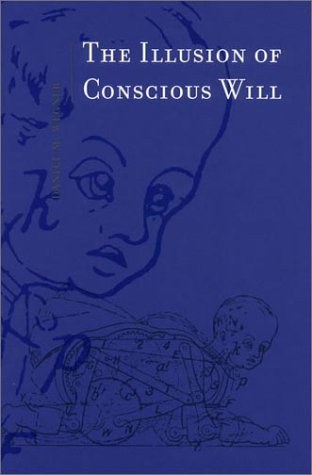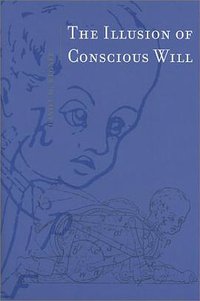The Illusion of Conscious Will
豆瓣
Daniel M. Wegner
简介
Do we consciously cause our actions, or do they happen to us? Philosophers, psychologists, neuroscientists, theologians, and lawyers have long debated the existence of free will versus determinism. In this book Daniel Wegner offers a novel understanding of the issue. Like actions, he argues, the feeling of conscious will is created by the mind and brain. Yet if psychological and neural mechanisms are responsible for all human behavior, how could we have conscious will? The feeling of conscious will, Wegner shows, helps us to appreciate and remember our authorship of the things our minds and bodies do. Yes, we feel that we consciously will our actions, Wegner says, but at the same time, our actions happen to us. Although conscious will is an illusion, it serves as a guide to understanding ourselves and to developing a sense of responsibility and morality.Approaching conscious will as a topic of psychological study, Wegner examines the issue from a variety of angles. He looks at illusions of the will -- -those cases where people feel that they are willing an act that they are not doing or, conversely, are not willing an act that they in fact are doing. He explores conscious will in hypnosis, Ouija board spelling, automatic writing, and facilitated communication, as well as in such phenomena as spirit possession, dissociative identity disorder, and trance channeling. The result is a book that sidesteps endless debates to focus, more fruitfully, on the impact on our lives of the illusion of conscious will.
contents
Preface ix
1 The Illusion 1
It usually seems that we consciously will our voluntary actions, but this is an
illusion.
2 Brain and Body 29
Conscious will arises from processes that are psychologically and
anatomically distinct from the processes whereby mind creates action.
3 The Experience of Will 63
The experience of conscious will arises when we infer that our conscious
intention has caused our voluntary action, although both intention and
action are themselves caused by mental processes that do not feel willed.
4 An Analysis of Automatism 99
The experience of will can be reduced to very low levels under certain
conditions, even for actions that are voluntary, purposive, and complex—and
what remains is automatism.
5 Protecting the Illusion 145
The illusion of will is so compelling that it can prompt the belief that acts
were intended when they could not have been. It is as though people aspire
to be ideal agents who know all their actions in advance.
6 Action Projection 187
The authorship of one’s own action can be lost, projected away from self to
other people or groups or even animals.
7 Virtual Agency 221
When people project action to imaginary agents, they create virtual agents,
apparent sources of their own action. This process underlies spirit possession
and dissociative identity disorder as well as the formation of the agent self.
8 Hypnosis and Will 271
In hypnosis the person experiences a loss of conscious will. This loss
accompanies an apparent transfer of control to someone else, along with the
creation of some exceptional forms of control over the self.
9 The Mind’s Compass 317
Although the experience of conscious will is not evidence of mental
causation, it does signal personal authorship of action to the individual and
so influences both the sense of achievement and the acceptance of moral
responsibility.
References 343
Author Index 387
Subject Index 399
